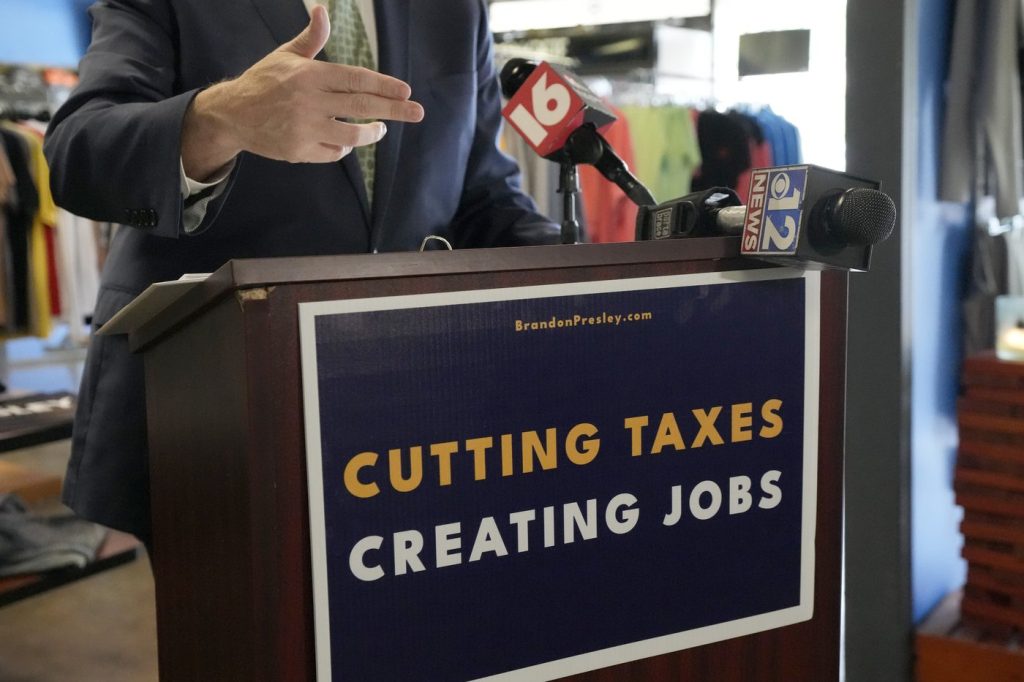Approximately 45 years have elapsed since a U.S. state last repealed its income tax on wages and salaries. However, recent developments in Mississippi and Kentucky suggest that these states may be on the brink of eliminating the income tax entirely, contingent on continued economic growth. This movement towards abolishing income tax is one of the most pronounced examples of a broader tax-cutting trend that has emerged across various states as they recover from the COVID-19 pandemic, buoyed by increasing revenues and experiencing historic surpluses.
Nonetheless, the drive to remove income taxes emerges amid growing uncertainty for state governments, as they await potential impacts from President Donald Trump’s fiscal policies and tariffs, which could affect federal funding and the overall economic landscape. Some fiscal analysts caution that eliminating income taxes might compel states to rely more on other taxes, like sales taxes, which can disproportionately burden low-income residents.
The authority to impose income taxes stems from the 16th Amendment to the U.S. Constitution, ratified in 1913, enabling Congress to levy such taxes. Since then, the majority of U.S. states have established their own income tax systems. Currently, eight states do not impose any personal income tax: Alaska, Florida, New Hampshire, Nevada, South Dakota, Tennessee, Texas, and Wyoming. Notably, Washington does not tax wages but does impose taxes on certain capital gains exceeding $270,000.
Alaska abolished its personal income tax in 1980, primarily driven by an influx of state funds derived from oil revenues. Although discussions on repealing income taxes have emerged in various locations, they have often been met with failure. Katherine Loughead, a senior analyst at the nonprofit Tax Foundation, noted, “It’s a lot easier to go without an individual income tax if you’ve never levied one. But once you become dependent on that revenue, it is much more challenging to phase out or eliminate that tax.”
In Mississippi, Governor Tate Reeves, a Republican, recently enacted legislation to gradually lower the state's income tax rate from 4% to 3% by 2030. The law establishes specific revenue growth benchmarks that may lead to additional cuts until the tax is entirely abolished. Alongside this, the legislation reduces the sales tax on groceries while increasing the gasoline tax. If the state's cash reserves are adequately funded and the revenue triggers are fulfilled annually, Mississippi could potentially eliminate its income tax by 2040.
Supporters of this tax repeal argue that it will draw in businesses and residents, ultimately enhancing the state’s economy akin to Florida, Tennessee, and Texas. Reeves remarked, “Mississippi has the potential to be a magnet for opportunity, for investment, for talent – and for families looking to build a better life.” Nevertheless, given that Mississippi is one of the nation’s poorest states and heavily dependent on federal funding, Democratic lawmakers express concerns about the potential for a financial crisis if federal funding cuts coincide with state income tax reductions. Analysts point out that income tax revenue constitutes a significant portion of funding for essential services like education and healthcare.
In Kentucky, a law passed in 2022 has already initiated reductions to the state's income tax rate, contingent upon a series of revenue-based triggers that could notably decrease the tax over time. Unlike Mississippi’s automatic triggers, modifications require approval from the Kentucky General Assembly, resulting in a series of tax reduction measures. Most recently, the state has implemented two new laws: one to decrease the tax rate from 4% to 3.5% starting in 2026, and another that facilitates earlier tax rate reductions if revenue growth benchmarks permit smaller incremental decreases.
Governor Andy Beshear, a Democrat, has expressed his concern over these changes, referring to them as a “bait-and-switch” tactic, while allowing legislation for next year’s tax cut to become law without his signature. The ongoing push for tax reductions is echoed in other states; for instance, Oklahoma’s House has passed legislation aimed at gradually phasing out the personal income tax, pending certain revenue growth criteria, while Missouri’s new Republican Governor, Mike Kehoe, seeks to eliminate the income tax altogether.
Both New Hampshire and Tennessee, which have never taxed wages and salaries, have recently abolished taxes on certain types of income. In 2021, Tennessee ended its income tax on interest from bonds and stock dividends, and New Hampshire ceased its tax on interest and dividends at the start of this year. Meanwhile, efforts to repeal income taxes continue to gain momentum in several states, reflecting a growing trend towards fiscal conservatism and tax reform.










